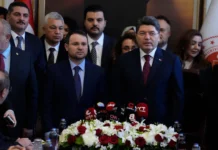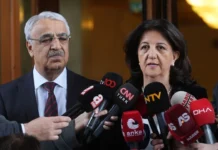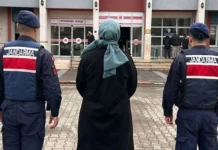Turkey’s National Intelligence Organization (MİT) has confirmed in its yearly report that it conducted operations for the forcible return of more than 100 people with alleged links to the Gülen movement, the Habertürk daily reported.
“… [M]ore than 100 members of the [Gülen movement] from different countries were brought to Turkey as a result of the [agency’s] increased operational capacity abroad,” MİT’s 2022 report said.
Vice President Fuat Oktay earlier said in a speech in parliament that Turkish agents had conducted “diplomacy” with their counterparts in countries where Turkish nationals were abducted.
Since a coup attempt in July 2016 the government of President Recep Tayyip Erdoğan has employed extralegal methods to secure the return of its critics after its official extradition requests were denied.
Turkey’s efforts at transnational repression against critics abroad do not seem to be winding down. Most recently, Uğur Demirok, a Turkish businessman who went missing in Azerbaijan on September 6, was abducted and illegally brought to Turkey by MİT.
Erdoğan has been targeting followers of the Gülen movement, inspired by Turkish Muslim cleric Fethullah Gülen, since the corruption investigations of December 17-25, 2013, which implicated then-prime minister Erdoğan, his family members and his inner circle.
Dismissing the investigations as a Gülenist coup and conspiracy against his government, Erdoğan designated the movement as a terrorist organization and began to target its members. He intensified the crackdown on the movement following the abortive putsch in 2016 that he accused Gülen of masterminding. Gülen and the movement strongly deny involvement in the coup attempt or any terrorist activity.
The government’s campaign has mostly relied on renditions, in which the government and its intelligence agency MİT persuade the relevant states to hand over individuals without due process, using various methods. The victims have faced a number of human rights violations including arbitrary arrests, house raids, torture and ill-treatment during these operations.
An SCF report, released in October, 2021 and titled “Turkey’s Transnational Repression: Abduction, Rendition and Forcible Return of Erdoğan Critics,” focused on how the Turkish government under President Erdoğan has used extrajudicial and illegal methods for the forcible transfer to Turkey of its citizens abroad.
In several of these cases the UN Working Group on Arbitrary Detention (WGAD) concluded that the arrest, detention and forced transfer to Turkey of Turkish nationals were arbitrary and in violation of international human rights norms and standards.
Representatives of the Belgian-based law firm Van Steenbrugge Advocaten (VSA), the Turkey Tribunal VZW nongovernmental organization and European judges association Magistrats Européens pour la Démocratie et les Libertés (MEDEL) announced at a news conference in The Hague on Wednesday that they had sent a communication to the International Criminal Court (ICC) that includes evidence of crimes against humanity committed in Turkey.
The communication alleges that Turkish officials have committed crimes of “torture,” “enforced disappearances,” “imprisonment in violation of fundamental rules of international law” and “persecution,” which are crimes against humanity as defined by Article 7 of the Rome Statute.
The communication to the ICC includes 463 individual statements of torture relating to 800 persons and 59 cases of extraterritorial and domestic enforced disappearance relating to 109 persons.















